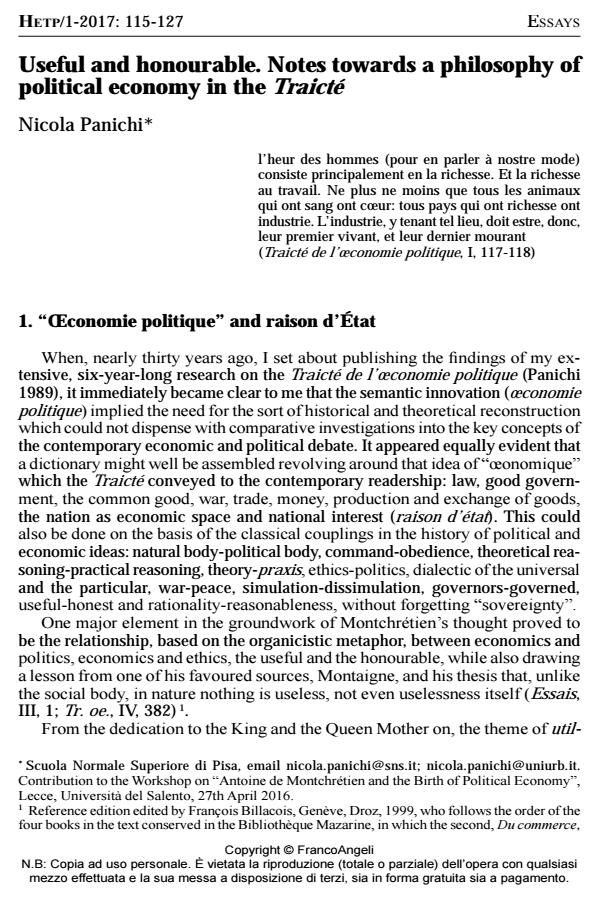Useful and honourable. Notes towards a philosophy of political economy in the Traicté
Journal title HISTORY OF ECONOMIC THOUGHT AND POLICY
Author/s Nicola Panichi
Publishing Year 2017 Issue 2017/1
Language English Pages 13 P. 115-127 File size 213 KB
DOI 10.3280/SPE2017-001006
DOI is like a bar code for intellectual property: to have more infomation
click here
Below, you can see the article first page
If you want to buy this article in PDF format, you can do it, following the instructions to buy download credits

FrancoAngeli is member of Publishers International Linking Association, Inc (PILA), a not-for-profit association which run the CrossRef service enabling links to and from online scholarly content.
Montchrétien set off in pursuit of a solution to the complex problem of the relationship between economics and politics, inherent to the sovereign’s task of modifying the laws according to the needs, and working on the aspects regarding the health and conservation of the State. If what is "useful" for the city is the true end of reasonable policy (of raison d’état), then is it to be a matter of reaffirming the Ciceronian viewpoint, the "useful" and the "honourable" being inseparable, as Aristotle taught in the seventh book of Politics? Montchrétien seems to follow the reflections of Bonaventura, according to whom the useful which does not abandon the honourable, pursued and conserved from raison d’état, is that which seeks to preserve the city in well-being not only from the inevitable decay of time (the body politic ages, just like the natural and animal body) but to conserve it with a view to the health of the social body, to which all the efforts of the nation should be directed, becoming the sort of collective subject, much like seamen aboard a ship with different tasks serving one common purpose.
Keywords: Antoine de Montchrétien; "theory of perfectibility", political economy and political theory; philosophy of political economy.
Jel codes: B11; B19; B31
Nicola Panichi, Useful and honourable. Notes towards a philosophy of political economy in the Traicté in "HISTORY OF ECONOMIC THOUGHT AND POLICY" 1/2017, pp 115-127, DOI: 10.3280/SPE2017-001006